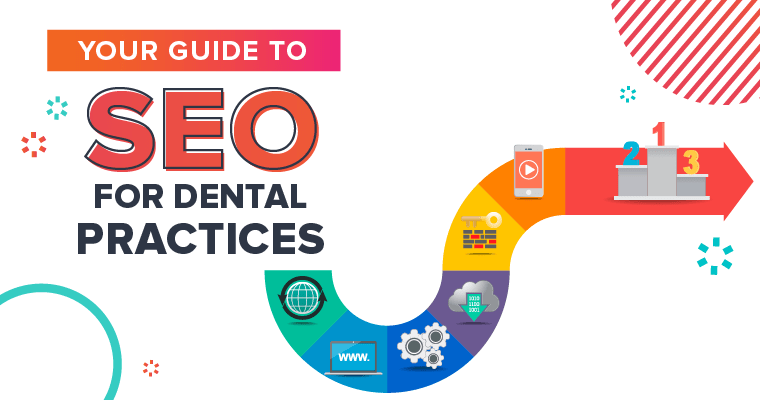If you’re a dental professional looking to boost your online presence and attract more patients, optimizing your website for dental SEO is the key. By targeting dentists and orthodontists searching for an SEO agency, you can position yourself as the go-to expert in the dental industry. And if you’re located in Philadelphia, mentioning it in your articles can make a significant impact. So, let’s explore the world of dental SEO and discover how it can revolutionize your practice.
Understanding Dental SEO
In today’s digital age, having a strong online presence is crucial for any business, including dental practices. This is where Dental SEO comes into play. Dental SEO refers to a set of strategies and techniques used to optimize a dental website’s visibility in search engine rankings. By implementing effective Dental SEO practices, dental practices can attract more organic traffic to their websites, increase their online visibility, and ultimately grow their patient base.

Importance of SEO for Dental Practices
With the majority of people turning to search engines like Google to find local businesses, including dentists, it has become essential for dental practices to invest in SEO. By appearing on the first page of search engine results, dental practices have a higher chance of gaining exposure to potential patients. In fact, studies show that the majority of users do not look beyond the first page of search results when searching for a local service, such as a dentist. Therefore, dental practices that neglect SEO run the risk of being overshadowed by their competitors.

What is Dental SEO?
Dental SEO involves a combination of strategies and techniques aimed at improving a dental website’s visibility in search engine rankings. These strategies focus on both on-page and off-page optimization, with the goal of driving organic traffic to the website. Dental SEO involves various components such as keyword research, on-page optimization, technical SEO, local SEO, link building, and content marketing. By implementing these strategies effectively, dental practices can improve their website’s ranking and attract more potential patients.

Benefits of Dental SEO
Implementing effective Dental SEO practices offers numerous benefits for dental practices. Firstly, it helps improve a dental website’s visibility in search engine rankings, making it easier for potential patients to find the practice online. This increased visibility leads to more organic traffic and potential patient conversions. Additionally, Dental SEO allows dental practices to target specific keywords and geographic locations, enabling them to reach their target audience more effectively.
Furthermore, Dental SEO can help establish trust and credibility for a dental practice. When a website ranks high in search results, it instills a sense of credibility and reliability in the minds of users. This increased trust leads to higher patient conversion rates as users are more likely to choose a dental practice that appears at the top of search results. Overall, Dental SEO provides an opportunity for dental practices to grow their patient base, increase their online visibility, and establish themselves as leaders in the dental industry.

Factors Affecting Dental SEO Rankings
Several factors contribute to the ranking of dental websites in search engine results pages. It is important for dental practices to understand these factors in order to optimize their websites effectively. Some key factors affecting Dental SEO rankings include:
1. Website Speed and Performance:
Search engines prioritize websites that load quickly and offer a seamless browsing experience. Slow-loading websites not only provide a poor user experience but also negatively impact SEO rankings. Dental practices should prioritize optimizing their website’s speed and performance by minimizing page load times, compressing images, and utilizing caching techniques.
2. Mobile-Friendliness and Responsive Design:
With the increasing use of mobile devices, search engines have placed a strong emphasis on mobile-friendliness. Dental websites that are not optimized for mobile devices are likely to be penalized in search rankings. Dental practices should ensure their websites are mobile-friendly, responsive, and offer a smooth user experience across all devices.
3. XML Sitemap for Dental Websites:
An XML sitemap helps search engines understand the structure and content of a website. By submitting an XML sitemap to search engines, dental practices can ensure that all pages on their website are indexed and easily discoverable. This improves crawlability and helps improve SEO rankings.
4. Robots.txt and Crawling:
The robots.txt file allows website owners to control how search engine crawlers access their website. Dental practices should use robots.txt to guide search engine crawlers and limit access to certain pages, such as admin or private sections. This ensures that search engines prioritize indexing relevant pages, improving overall SEO.
5. Canonical URLs:
Canonical URLs are used to indicate the preferred version of a webpage when multiple versions exist. Dental practices should implement canonical URLs to prevent duplicate content issues and ensure that search engines understand the primary version of each page.
6. SSL Certificate for Dental Websites:
Having an SSL certificate is not only important for website security but also for SEO. Search engines prioritize secure websites and may penalize those without SSL certificates. Dental practices should invest in SSL certificates to improve their SEO rankings and gain the trust of their website visitors.
7. Structured Data Markup:
Structured data markup is a way of providing search engines with additional information about a webpage’s content. Dental practices can use structured data markup to highlight specific details such as their practice name, address, and contact information. This additional information helps search engines understand the relevance and context of the webpage, potentially improving SEO rankings.
By understanding and implementing these factors, dental practices can optimize their website effectively and improve their SEO rankings. Stay tuned to learn more about specific strategies for dental SEO success.


